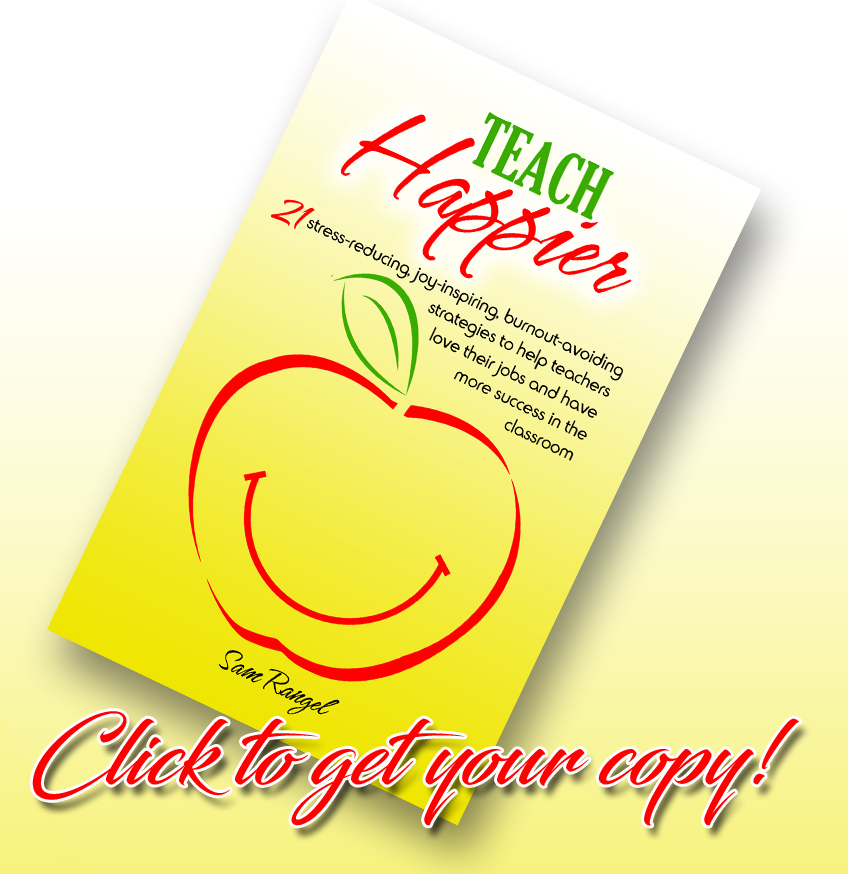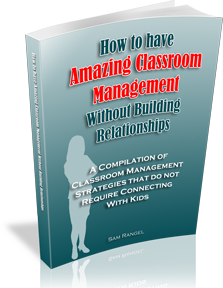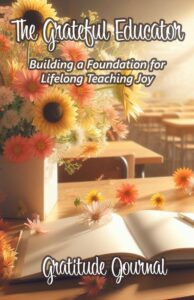
I’m sure you’ve heard the playground saying, “Sticks and stones may break my bones, but words will never hurt me.” We know that this isn’t true at all. Words can hurt so much more and for a longer time than sticks and stones.
I was reminded of this saying recently.
As I mentioned in an earlier post, I’m subbing for an administrator in another school in our district. It brought back a memory of an incident that took place last year when I was subbing in another school as an administrator. It’s one of those moments that I’ll never forget. I thought I’d share it here.
His name wasn’t Fernando, but that’s what I’ll call him. He was the toughest eighth grader on campus. He had just returned from suspension for fighting, and he was heavy into the gang scene.
After about two weeks into my stint as a sub, he was brought to the office, because someone had reported that he had a knife in his backpack that he was showing around.
When he was brought in, he was his tough, belligerent self, denying guilt and saying that he wasn’t involved in anything having to do with a knife.
Then we searched his backpack, and found the knife.
It was a regular size Swiss Army knife.
As in most schools, having any sort of weapon is grounds for suspension, and since Fernando already had a record, he was up for expulsion.
When we discussed this with him, his tough exterior began to change. He immediately started asking to call his father. “I want to call my dad,” he kept saying. We told him that we were going to have to notify his parents, and at that time he would be able to speak with his father.
Since his parents spoke no English, I was the one to make the phone call, since I was the only administrator who could speak the language.
I called the number on file which turned out to be the mother. I explained what happened, and that someone would have to pick Fernando up from school. The mother, obviously, was upset. Again, Fernando asked to speak with his father, so I called the number he gave me.
I told the father what happened, and he just listened. Then I told him that Fernando wanted to speak with him, so I pushed the speaker button, so Fernando could speak with his dad and so I could also hear the conversation.
I nodded to Fernando.
All Fernando said was, “Papá?”
Then the father’s voice came through the speaker on the phone. Speaking in Spanish he said, “Fernando, you are the most stupid person in the whole world. You are such and idiot…”
That’s when I pushed the speaker button again, told the father thank you, and hung up.
As soon as the father said that first sentence, I saw the toughest boy in eighth grade just crumble in his chair. The tears began to flow. He was beaten – with words.
I spent the next ten minutes trying to undo the damage that Fernando’s father had done in ten seconds.
I reminded him that even though this was a big mistake, it wasn’t the end of his world. I told him that he had a bright future if he wanted it. I tried to fill his brain with positive words, words of encouragement and hope. I don’t think anything I said, however, was enough to overcome those few words that he heard from his father.
I couldn’t get Fernando and his stupid father out of my mind all that day. I later heard that Fernando ended up getting expelled. I wonder what he’s doing now.
If there’s any lesson I’ve learned from this experience, it has to be that words have a powerful impact on students. I need to remember to choose my words wisely. I’ve learned to always assume that my students are having their brains filled with negative words at home. Even if they are not, it’s better to assume the worst in this case. I’ve chosen to do my best to use the time I have with them to fill their brains up with words of encouragement and hope and success.
I’m sure if I would have asked Fernando what he would rather have – sticks and stones or those words from his father, he would have said, “Hit me with a stick.”
Thanks,
Sam
Photo by http://www.flickr.com/photos/46628201@N08




Your story of Ferdinand reminds me how important teachers are and how blessed we are to have the opportunity to positively influence the students we interact with.
Mind you sometimes when interacting with “difficult” students I forget the being blessed part. In the heat of the moment, I just look at the kid and wonder what is your problem.
Sometimes as in Ferdinand’s case, the problem is a parent or someone else important to the student who crushes the student’s soul on a daily bases.
Just today, I had the opportunity to help a student understand that his inappropriate behaviour in class and else where in school stems from his attempt to deal with circumstances that threaten his sense of self and crushes his soul. The student was able to see the connection between his feeling “stupid” and choosing to act in as manner that he mistakenly thinks will make people think he is “smart”.
Fortunately this student is in my class so that I can support him on a daily basis. A few words of authentic kindness go a long way in helping students reconstruct their sense of self and undue some of the damage that others have done.
Thank you for the comments Elona. The kids in your class have no idea how lucky they are. Imagine if they had lousy parents AND an uncaring teacher. Keep doing what you’re doing. Thanks again. Sam
I highlighted your post in my Daily Digest of Education related blogs today as I thought other teachers would find it of interest. You can see it here: http://ow.ly/3l602